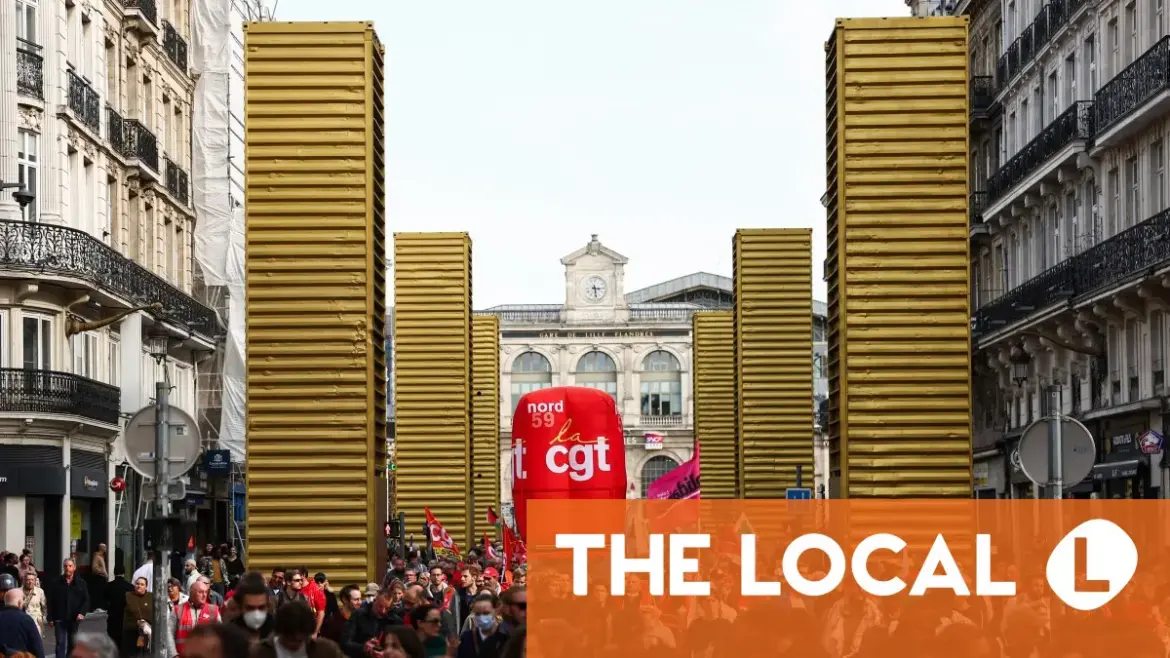French unions have called for strike action on Tuesday, December 2nd to put pressure on MPs regarding the 2026 draft Budget. Here’s what to expect in terms of disruption.
Three French unions, CGT, Solidaires, and the FSU, have called for a national, cross-sector strike action on Tuesday, December 2nd.
The initial call to strike action was in opposition to the draft 2026 Budget, which is currently being debated in parliament. CGT union leader Sophie Binet described it as a “horror show”.
In their most recent press release, the three unions decried the Budget’s lack of fiscal justice and the “resistance from the right and far right, who have joined forces to protect large fortunes.”
Unions are calling on “all young people, workers, retirees, and unemployed people to mobilise through strikes and demonstrations”.
How disruptive could the strike action be?
As things stand, it is only the three unions – CGT, Solidaires, and FSU – who have called on workers to walk out. France’s largest union – the CFDT – still has not indicated any plans to join.
The previous mobilisations in September waned as they went on, but initially, they brought disruption, and large crowds joined in the protests.
The first union-led day of action (on September 18th) saw between 500,000 and 1 million people participate in strikes and marches across France, and it brought public transport in the city of Paris to a halt.
Ultimately, disruption depends on whether other unions representing transport sectors will join in calls for strike action.
Trains – It remains to be seen whether there will be widespread disruption to rail travel. So far, the CGT union representing cheminots (train drivers) with SNCF has called for industrial action.
While the CGT union represents a little over a third of train drivers, other significant unions representing train drivers, like UNSA and Sud Rail, have not called for strike action yet.
At this stage, no traffic forecasts have been released by SNCF. Forecasts will be available by 5pm the day before the strike (Monday, December 1st).
Public transportation – CGT RATP, which represents about a third of public transport workers in Paris, has called for walkouts on December 2nd. The strike notice spans from Monday, December 1st at 6pm to Wednesday, December 3rd at 7am.
It remains to be seen whether other public transport unions, as well as those in other cities, will call for strike action. Previous CGT-only strikes in Paris have not led to significant disruption on public transport. The RATP will publish expected Metro line closures or delays the day before the protest.
Government offices – Both CGT and Solidaires have called on public servants to walk out on December 2nd. It is possible some public buildings – such as préfectures, mairies, or tax offices – could be closed, depending on local participation.
Schools – The FSU union represents over 80 percent of French teachers, and it has called for walkouts on December 2nd. As such, classes might be cancelled. In France, primary school teachers must give 48 hours notice before walking out, so families of pupils affected by the strike should have already been informed.
Keep in mind that canteens and after-school care services could be closed too.
Air travel – So far, France’s civil aviation authority (the DGAC) has not called for any flight cancellations, and at the time of writing, there were no calls for strike action from the SNCTA, the largest air traffic controller union. Meanwhile, two of the smaller unions representing Air France pilots have called for strike action against job cuts on December 2nd and 3rd.
Healthcare – The CGT Santé union has called for strike action. As such, there may be some closures of doctors’ offices. In France, doctors who work in hospitals are not permitted to walk off the job, so their ‘strikes’ usually take symbolic form, such as wearing a badge saying ‘on strike’ while staging protests outside the hospital.
What about protests?
Protests are likely in major French cities, such as Paris, Lyon and Marseille. There may also be demonstrations in smaller cities. You can find them on the CGT union’s interactive protest map.
For example, in Paris the CGT said the protest will start at 4pm at Place de l’Opéra, while in Lyon it will start at 11am at the Place des Cordeliers.
In Bergerac, the protest will start at 3pm at the Palais de Justice, and in La Rochelle it will begin at 10.30am at the Place de l’Hôtel de Ville.
In Calvados in Normandy, there will be a protest in Caen at 5.30pm in front of the préfecture, and in Lisieux at 10.30 starting at the Place François-Mitterand.


Dining and Cooking